A Songkran Day With Elephants and Mahouts
This Songkran morning does not start auspiciously –
the minibus that is to pick us up for our day in the country-side around Chiang Mai does not appear. Finally, we head out of town, and after about 45 minutes, we stop. Our guide points up a hill and tells us that we are walking up, and up we go – and go – and go, in the heat and dust. There is almost no shade on this walk up the hill to a tribal village. We finally get to the top. Half our group didn’t make it – they turned when they saw the rickety, bamboo bridge over the river. The four who did, Keith and Pat from England, and Greg and I, are all panting and sweating and desperate for water. But not the gleeful, chalk-laden Songkran water being hurled at us tourists. The village itself is sad – dry, dusty, pigs and chickens and old people and children and don’t seem to be celebrating Songkran at all. There are woven goods to buy, and drinks and ice creams. This is subsistence living. Our guide explains that today, only the very old and the very young live in the villages – everyone else goes to the cities to make money, coming back only for weekends and holidays, leaving the children to be looked after by their grandparents.
Different Village, Same Story
We hike back down the hill, and head off for lunch in a roadside stand. We watch as the locals, including our guide, pitch bucket after bucket of water at the cars, scooters and Tuk Tuks passing by. After lunch, we head to a 2nd native village. Same story, different tribe. From there we head to a waterfall swimming hole. It is quite busy – because Songkran is a big holiday, many people who live in the cities are visiting their ancestral villages and come here for relaxation. Despite the crowds, there is room enough for everyone, and of course, the Thai courtesy and gentleness that we have come to love is everywhere apparent. Sa-wa-dee-krup! It certainly makes one wonder why we in North America are, generally, so unpleasant to one another in our public demeanor. Life would certainly be nicer if we could adopt a more Thai-like attitude.
Riding Elephants
We walk back up the big hill to our minibus, and head off again. Although the best parts of the day are yet to come, everyone is feeling weary. But off we go, and as soon as we spot the elephants we are about to ride, everyone revives. As with my previous elephant ride, we walk up some stairs to a platform to take our places on the elephant’s back. The elephants are sure-footed, and although we wonder how they keep stable on part of the walk, they have no problems and evidence no worries. We cross a little river twice, and both times the elephants stop and frolic, enjoying the coolness of the water, filling their trunks and spraying themselves, and us. Everyday must be Songkran for elephants. From time-to-time, our elephant makes this deep rumble for a few seconds; if she were a cat, we would say she was purring. We find out that she is 25 years old, that her mother, who is about 50, is the elephant in front of us. But the English skills of the mahouts don’t go far enough for us to find out what the purring noise is all about.
Please, May I Have Some Bananas?
Back at the platform are huge bunches of bananas for sale, 20 baht (60 cents) each. I buy one, and the mother elephant very deftly takes the complete bunch away from me before I know what is going on. The other 3 elephants are now crowding around, and Pat and I buy more bunches, now knowing to stand far enough away that we can rip off 2 or 3 bananas at a time and hand them to the elephants, who take them with the end of their trunks and stuff them into their mouths. We have some eyeball-to-eyeball moments, and the elephants again make their pleasure known.
On the way back to the mini-bus, Pat, Keith, Greg and I talk about the mahouts, and the sticks they carry with short metal spikes that curve slightly at the end, which they use to control the elephants. We worry about whether this is cruel to the elephants, but at the same time we reckon that if the elephants didn’t want to be carrying us around, nobody with a stick and a short spike is going to be able to make them. So, with thousands of years of symbiosis between elephant and mahout, and with the existence of both elephant and mahout completely intertwined and interdependent, we don’t feel that we can impose our westernized, and totally impressionistic, feelings onto what is a lifelong relationship between the elephant and the mahout.
Bamboo Rafting Down the River
From here, it is a short ride to our last event of the marathon day – bamboo rafting down the river. There are 3 of us and a driver to each raft, which is made of 10 bamboo logs lashed together, each log about 5 metres longs. Our guide tells us that in the wet season the ride would be much longer, but that because the water level is so low, it will be a slow passage. We head off, and sure enough, the way is full of rocks to be navigated around. As we go down the river, we pass many families doing exactly the same thing – we have the benefit of a professional driver, who knows where the obstacles are and who thus avoids getting caught in most of the traffic jams we pass. Each raft we go by splashes water at us – “Happy Songkran” – and we in turn do the same. All of it wonderful fun, and being wet in a beautiful river on a very hot day, full of people enjoying themselves, is not a bad way at all to spend an hour.
Happy Songkran!
The drive back to Chiang Mai is slow – every few metres a group of people stands at the side of the road, buckets in hand, drenching everyone passing by. At one point, an elegant young woman on a scooter gives a bunch of them the dirtiest look we’ve seen in Thailand, and we wonder what she was expecting – this is so clearly just the way it is, and apparently the way it is going to be until Thursday, when Songkran finally ends. Back at the hotel, we barely have enough energy to go out for dinner after our long day – the only thing that convinces us is the room service menu, which is full of items like club sandwiches and hamburgers. No amount of exhaustion is worth eating this for dinner, when there are wonderful Thai restaurants lining the streets around the hotel.
But out we go – all the merry Songkranners have gone home for the night – and we plop into seats at the first restaurant we come across, too tired to go further – but rewarded for our doggedness by wonderfully delicious food.
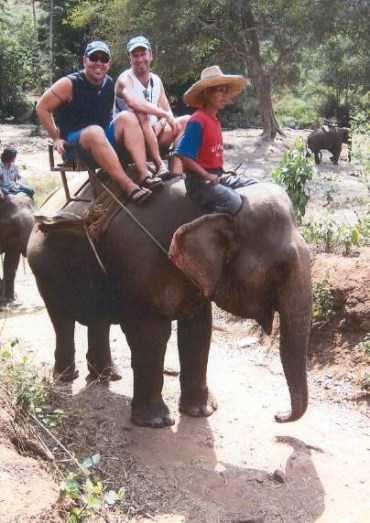


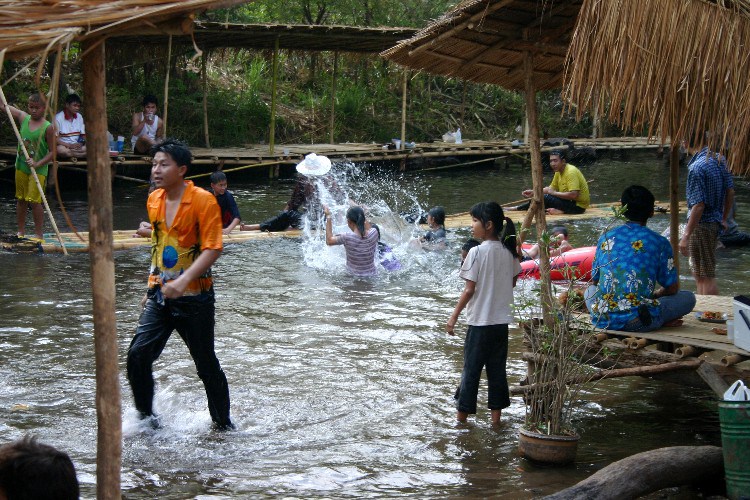
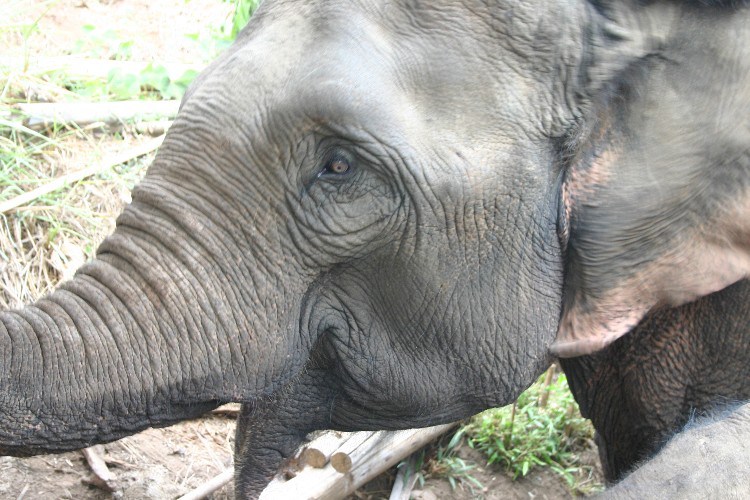



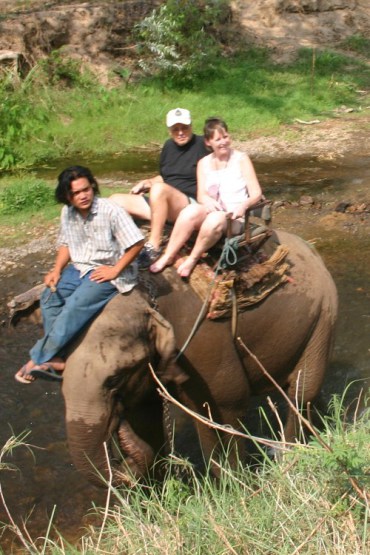



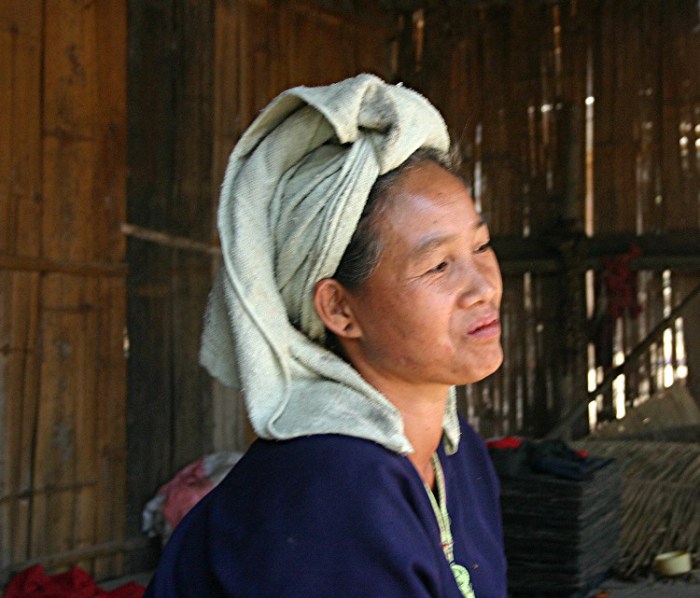





Comments